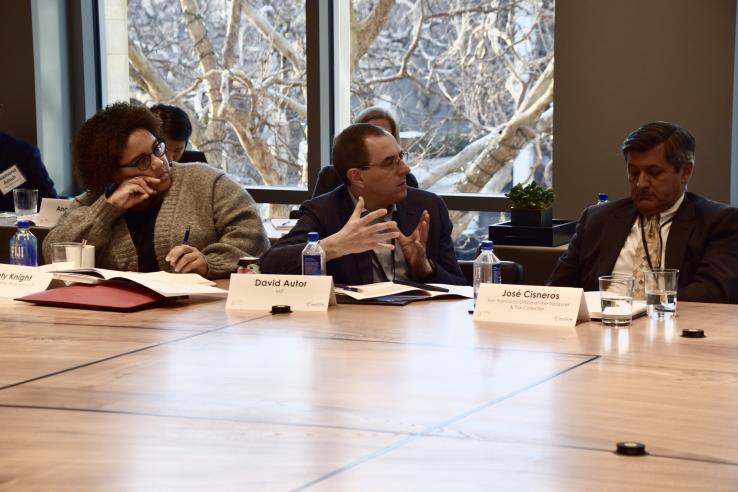February 2020 North America Newsletter

Good afternoon,
I’m thrilled to announce the application launch to participate in J-PAL’s flagship executive education course, Evaluating Social Programs, at MIT this June 8-12.
The launch also makes me nostalgic. Evaluating Social Programs was one of the very first events I attended as a new staff member nine years ago. I remember being impressed by the participants from across the globe who were committed to learn and use research to make an impact on peoples’ lives, and I learned a great deal from listening to their questions and case examples.
We run the five-day course to build the expertise of leaders in governments, non-profits, foundations, and others to identify why and when to use randomized evaluations. Attendees take the lessons they learn and apply them in their own contexts.
For example, a senior manager from Medha—a nonprofit that provides employment support for youth—attended the course in July 2018 with a desire to rigorously evaluate their school to work transition program. After the training, the attendee worked with J-PAL Affiliate Lori Beaman (Northwestern) to design a randomized evaluation for Medha's training program. Their study is ongoing and will help Medha's leadership learn about how to better support the students they serve, particularly women and students from underprivileged backgrounds, attain employment.
Please share widely with your networks and consider applying today. I look forward to welcoming our next training cohort to MIT this June.
Mary Ann Bates
Executive Director, J-PAL North America
Apply now for J-PAL’s Evaluating Social Programs course
J-PAL’s flagship executive education course is a five-day in-person training based at MIT that will take place June 8-12. The course provides an in-depth look at why and when randomized evaluations can be used to rigorously measure social impact, practical tools for evaluation design and impact, and how findings can inform evidence-based approaches. Through lectures taught by renowned academic researchers and small-group exercises, participants will build skills and learn to apply them at their home organizations. Applications are accepted on a rolling basis until April 17, 2020. Contact [email protected], view the Evaluating Social Programs course video, or download our course brochure to learn more.
Centering workers in the future of work
On January 14, J-PAL North America’s Work of the Future Initiative and the Gerri and Rich Wong family hosted a conversation to address the changing nature of work while advancing equity and opportunity. Ai-jen Poo, co-founder and executive director of the National Domestic Workers Alliance, kicked off the day, aimed at shifting the conversations surrounding the future of work to focus on working people and collaborative research partnerships. Read the MIT News article to learn more about what the 35 attendees from nonprofits, academia, government, philanthropy, and advocacy organizations discussed. Through this conversation and ongoing work, the Initiative seeks to catalyze research partnerships that center worker voices and generate research on strategies to help workers thrive in today’s labor market. Have an evaluation idea or an innovative practitioner that we should meet? Please email [email protected] and our staff will be in touch.
New evidence: the limits of using outreach to encourage take-up of the earned income tax credit
The earned income tax credit (EITC) is one of the country’s largest federal cash transfer programs, but many households eligible for the credit do not claim their EITC benefits. Last month, the California Policy Lab published a new report featuring research supported by the J-PAL State and Local Innovation Initiative. The report summarizes findings from several randomized evaluations testing various outreach strategies for increasing the take-up of the EITC via low-cost text messages and letters. The researchers find that although the outreach strategies were well-targeted towards non-filing, EITC-eligible households, none of the strategies evaluated had an impact on the likelihood that households file their taxes or claim the EITC. The results suggest that outreach alone is insufficient to improve the take-up of the EITC among non-filing populations in California. Researchers recommend that government agencies explore the feasibility of both simplifying the filing and claiming process and partnering with researchers to identify Californians who are not claiming programs for which they are eligible.